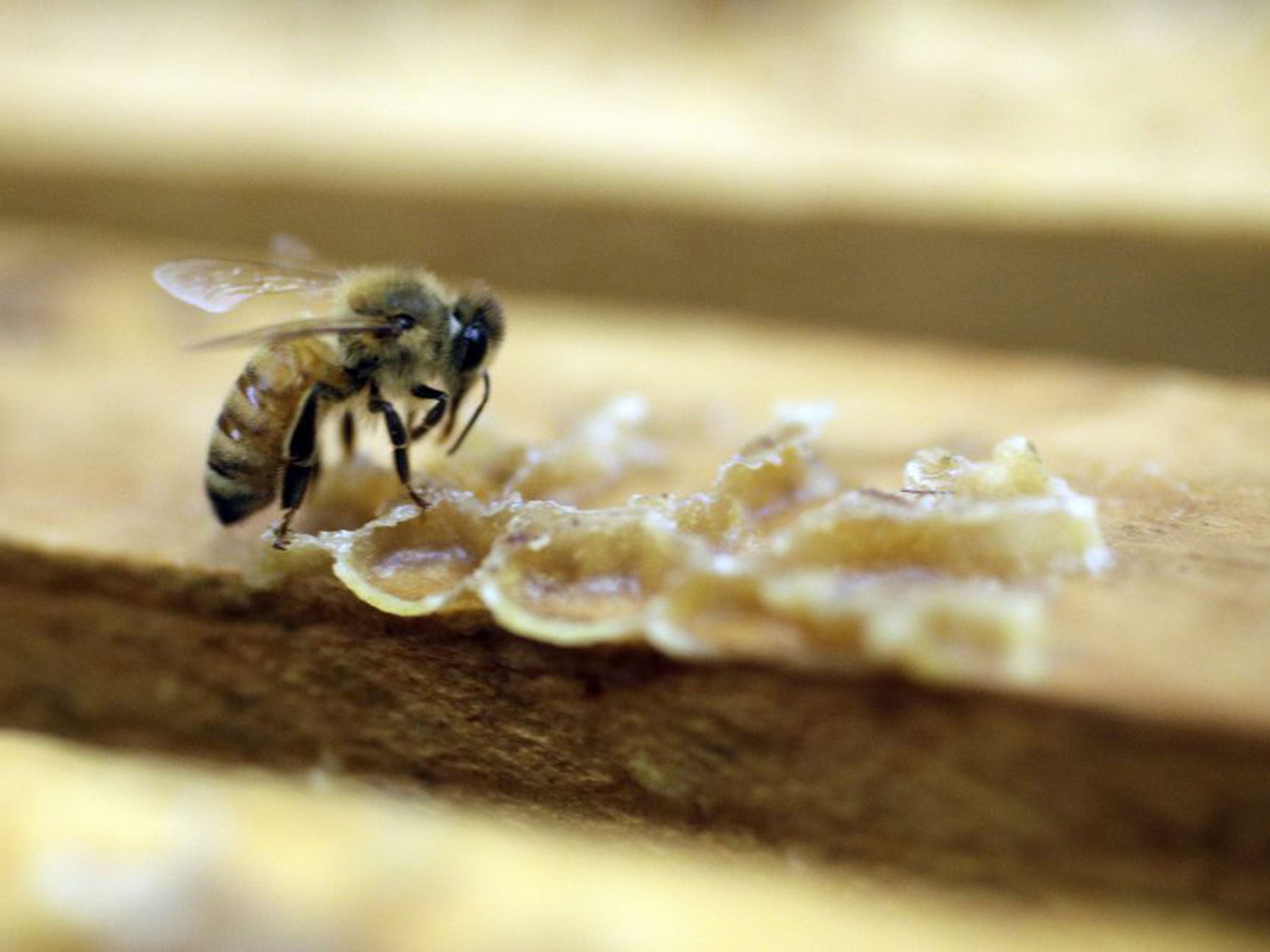Queen creates army of super honeybees that can defeat deadly varroa mites
The queen’s mother was from a colony in Vermont which managed to survive the cold winters there and also outbreaks of disease

Your support helps us to tell the story
From reproductive rights to climate change to Big Tech, The Independent is on the ground when the story is developing. Whether it's investigating the financials of Elon Musk's pro-Trump PAC or producing our latest documentary, 'The A Word', which shines a light on the American women fighting for reproductive rights, we know how important it is to parse out the facts from the messaging.
At such a critical moment in US history, we need reporters on the ground. Your donation allows us to keep sending journalists to speak to both sides of the story.
The Independent is trusted by Americans across the entire political spectrum. And unlike many other quality news outlets, we choose not to lock Americans out of our reporting and analysis with paywalls. We believe quality journalism should be available to everyone, paid for by those who can afford it.
Your support makes all the difference.A beekeeper in the US is breeding honeybees can kill the varroa mite, one of the main reasons why colonies have been dying off around the world, according to a report.
Jeff Berta, who lives on a farm in western Pennsylvania, has a honeybee queen whose appear to be resistant to the mites, according to the NPR radio station.
The queen’s mother was from a colony in Vermont which managed to survive the cold winters there and also outbreaks of disease.
And its father was a drone from bees raised at Purdue University which were found to groom themselves in a unique way.
“The bees will take the mite and they will bite the legs and will chew on the mite,” Mr Berta told NPR.
“And if they bite a leg off of the mite, the mite will bleed to death.
“So the bees are actually fighting back. That's the type of genetic line we're after right now.”
A honeybee with a parasitic varroa mite has been compared to a human infected with a blood-sucking domestic cat.
The queen, known as number 18, is being studied by scientists with funding from the US Department of Agriculture.
Most efforts to save honeybees from the mites have used pesticides designed to kill the latter, while sparing the former, with limited success.
However breeding honeybees with genes that enable them to fight off the mites is not a simple process. Queen 18 was born as a result of artificial insemination. If released into the wild, her descendants could mate with bees that do not have the same grooming technique.
Bee geneticist Christina Grozinger, of Pennsylvania State University, who works with Mr Berta, said: “You can’t produce a stock and say, ‘Now I’m done! And that was it! Now we can sell it everywhere!’
“You have to constantly re-select and constantly have to have people very interested in working as part of this effort.”
Join our commenting forum
Join thought-provoking conversations, follow other Independent readers and see their replies
Comments